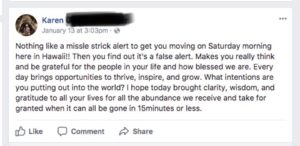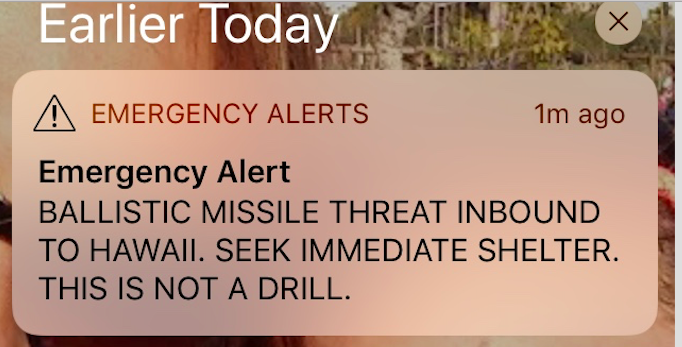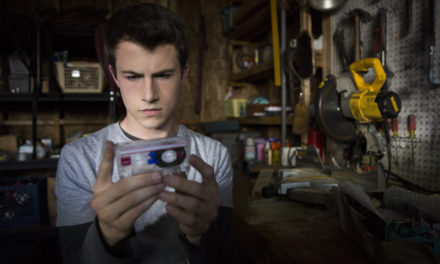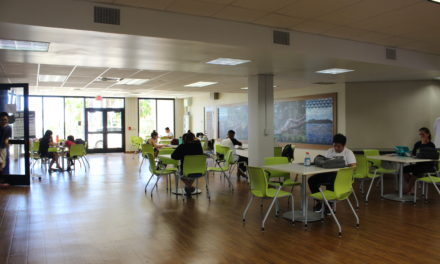Hawai‘i residents and tourists woke up on Saturday to a fright. Messages on phones across the islands read: “Ballistic Missile Threat Inbound to Hawaii. This is not a drill.” After long 38 minutes of panic, people received a second notification, informing that it had been a false alarm, and no threat was posed.
Over the internet, messages ranging from relief to anger for such a fright spread across the screens of social media. Occurrences like these lead us to the question: What to do in the event of a missile attack?

From gratitude to an unpleasant surprise, the nuclear attack notifications stirred mixed feelings across the islands. (Photo by Katlin Cilliers)
Effects of a nuclear attack
According to ready.gov, a nuclear blast is “an explosion with intense light and heat, a damaging pressure wave, and widespread radioactive material that can contaminate the air, water, and ground surfaces for miles around.”
There are short and long term effects to being exposed to radioactive particles. Short-term effects include ARS – Acute Radiation Syndrome – and its symptoms are nausea, vomiting and skin burn. Long-term consequences are related to an increase of cancer risk later in life.
Lay low and cover up
In case of a nuclear explosion, seek shelter as lowest to the ground as possible, such as basements and lower levels of a house. Radioactive debris cover surfaces such as walls and windows. According to ready.gov, the thicker the layers between you and the radiation, the better. Try not to touch windows and place as many layers, such as books, between yourself and exposed areas. Fallout radiation contaminates surfaces, water and the air. Keep cooling and heating devices shut, such as A/Cs. Tap water is not safe until examined by health and sanitation authorities.
Have an emergency kit
In the event of an attack, one must be prepared to stay put from anywhere between 24 hours to a few days, since radiation takes time to die down. Having an emergency kit ready to go will help ease the hustle and allow you to focus on finding a safe place indoors. From basic items such as food and water, emergency lists include foods that are easy to prepare, powdered milk and functional things such as a whistle to call for help, flashlights and a first aid kit. Ready.gov has a list with suggested items.
Family matters
We don’t often think about the practicalities of carrying out an emergency plan. Who is going to help grandma? What should we do with our pets? How about dad’s diabetes kit? These are aspects that should be planned out and spoken to with your family, so that in the event of an emergency, things run as smoothly as possible. There will be already hustle and an uncertain feeling as it is. No need to argue over responsibilities that can be discussed in advance. Chat to your family and establish a clear division of tasks and pair people according to their skills. If communication is key in life, it matters even more in times like these.
Find community fallout shelters
The University of Hawai‘i is currently working to establish safe fallout shelters, since the ones provided by the State of Hawai‘i date from Cold War times. Keep in touch with neighbors and other families in your community to find out if there are any local shelters or safe buildings people can rely on in the event of an emergency. The next step is to create a plan and decide whether you and your loved ones will weather the storm in your own home or if head to a shared shelter.
Get support – it will be alright
As much as it seems otherwise, disasters have a beginning, middle and an end.
While panicking, you might feel like there will be no tomorrow. However, it’s important to remember that radiation levels lose their intensity in about 14 days. If appropriate measures are taken, we can reduce any negative impact to our health and safety. We must be aware of the consequences, procedures and have a clear plan to deal with a crisis. Staying close to loved ones and giving and receiving support will help you endure any difficult times. All aggravating circumstances considered, it is not any different with a nuclear attack.






